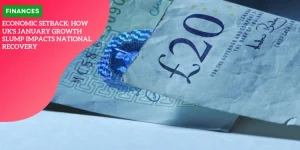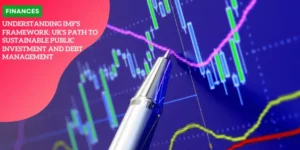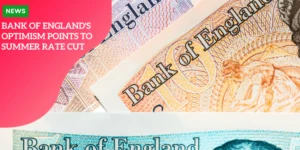Understanding Guernsey’s Economic Downturn: The Role of Finance in GDP Contraction
Economic Contraction in 2023
Guernsey faced a 2% economic contraction in 2023, marking its first decline since the pandemic.
This downturn highlights the island’s struggle to keep pace with neighboring regions like Jersey and the UK.
The primary culprit? A stuttering finance sector.
Despite the gloomy overall picture, certain areas such as insurance grew by 17% and funds by 8%, showcasing pockets of resilience.
Underperformance Amidst Challenges
While the pandemic caused global economic ripples, Guernsey’s latest struggle is homegrown.
The island’s economy expanded only 0.6% beyond its 2019 levels, while Jersey thrived with a 5% growth.
This underperformance underscores the need for robust policies to reinvigorate Guernsey’s market position.
With the finance sector contributing 40% to GDP, its 3% decline inevitably impacted broader economic health.
Despite thriving sectors like hospitality and administration, the finance industry remains crucial.
Policymakers now face the daunting task of closing the economic gap.
Looking ahead, there is a pressing need for strategic adjustments that prioritize sustainable growth, ensuring Guernsey maintains financial stability.
The Finance Sector’s Impact on GDP
The Role of Finance in Economic Contraction
Guernsey’s economy contracted by 2% in 2023, largely due to a 3% decline within its finance sector.
The finance sector accounts for a significant 40% of Guernsey’s GDP, making its performance crucial to the island’s overall economic health.
When this sector struggles, as it did this past year, the ripple effect is felt across the broader economy.
Importance of the Finance Sector
The pronounced dip in the finance sector has underscored its pivotal role in Guernsey’s economic landscape.
The dominance of finance means that even minor fluctuations can have outsized impacts.
As emphasized by Richard Hemans from Guernsey’s Institute of Directors, the island’s prosperity hinges on the vitality of this sector.
Supporting and revitalizing finance is paramount to reversing economic shrinkage.
Strategic Focus for Growth
To counteract the contraction, Guernsey must prioritize pro-growth policies tailored to the unique needs of its finance sector.
This includes strategic investments and initiatives aimed at reinforcing the sector’s stability and growth potential.
Hemans argues that economic growth should be the primary approach to addressing fiscal challenges.
As we delve into other sectors showing promise, the emphasis remains on creating a balanced strategy that fosters overall economic rejuvenation.
Bright Spots in the Economy
While the finance sector’s struggles have cast a shadow over Guernsey’s overall economic performance, there are encouraging developments in other areas of the economy.
Notably, the insurance sector has shown a remarkable 17% growth, and the funds sector has expanded by 8% in 2023.
These sectors not only provide a buffer against broader economic challenges but also highlight potential areas for strategic growth and investment.
Positive Trends in Other Sectors
Apart from finance, Guernsey’s hospitality and administration sectors are seeing encouraging trends.
The hospitality sector, in particular, is rebounding as travel and tourism activities pick up post-pandemic.
This sector’s recovery fuels job creation and supports local businesses, providing a boost to the island’s socioeconomic fabric.
Similarly, the administration sector is gaining traction, benefiting from increased demand for professional services.
These developments suggest diversified economic avenues that could be harnessed alongside efforts to stabilize the finance sector.
Focusing on these bright spots, Guernsey can cultivate a more balanced economic environment.
By leveraging growth in non-finance sectors, the island can build resilience against shocks within the finance arena, paving the way for a more sustainable future.
Comparative Analysis: Guernsey vs. Jersey
Economic Performance
Guernsey’s economic landscape has recently shown some contrasts when compared to its neighbor, Jersey.
Since 2019, Jersey’s GDP has grown by an impressive 5%, illustrating advancements and resilience.
Meanwhile, Guernsey’s GDP has seen only modest growth, standing just 0.6% larger than four years prior.
This disparity underscores the need for Guernsey to implement strategic, pro-growth policies that can narrow the gap.
Pro-Growth Policy Imperatives
To bridge this economic divide, Guernsey must focus on fostering growth-oriented strategies.
Adopting innovative policies similar to those employed by the UK’s Labour government could prove advantageous.
Targeted investment in key sectors, particularly the finance sector, is vital as it is considered the island’s “golden goose.”
Prioritizing these areas could significantly boost the economy and bring about long-term benefits.
Strategic Focus
To achieve sustainable growth, Guernsey must balance its public finances while proactively supporting its finance sector.
The positive trends seen in insurance and funds offer some optimism, suggesting that a well-nurtured finance sector might pave the way for broader economic stability.
As Guernsey explores these strategic avenues, attention to innovative policy frameworks can guide its trajectory toward economic recovery without previewing the next steps explicitly.
Addressing the Deficit Challenge
Guernsey faces a potential £24 million deficit, which demands strategic consideration.
There are four primary options for tackling this financial challenge:
- Tax Hikes: Raising taxes could generate immediate revenue but might negatively impact business and consumer spending.
- Spending Cuts: Reducing public expenditure can ease the deficit but risk hampering necessary services and investments.
- Borrowing: This provides short-term relief but could lead to long-term debt issues.
- Economic Growth: Prioritizing this option involves investing in key sectors, notably the finance sector, known as the “golden goose” for its substantial contribution to the economy.
Economic growth stands out as the favored approach.
By channeling investments into the finance sector and other burgeoning areas, Guernsey can pave the way for sustainable development.
This strategy aligns with pro-growth policies similar to those adopted by the UK Labour government.
Through focused investment in the finance sector, Guernsey can not only address immediate fiscal challenges but also foster a resilient economic environment.
Balancing fiscal prudence with growth initiatives will be crucial as Guernsey navigates these economic waters.
Future Outlook and Recommendations
Embracing Pro-Growth Policies
Guernsey can take a page from the UK Labour government’s playbook.
Prioritizing policies that stimulate economic growth is pivotal.
By focusing on innovative strategies, especially in sectors showing potential, Guernsey can aim to close the economic gap with Jersey.
Investing in the Finance Sector
The finance sector, often dubbed Guernsey’s “golden goose,” plays a crucial role in the island’s economy.
Investing in this sector is essential for recovery and growth.
Bolstering finance will not only stabilize the current economic landscape but also set a strong foundation for future prosperity.
Balancing Public Finances
With a potential £24 million deficit looming, Guernsey must tread carefully.
Strategies like tax adjustments or spending cuts might offer short-term relief, but prioritizing economic growth could provide sustainable solutions.
Ensuring that public income and expenditure align is vital for maintaining financial stability.
By focusing on these strategic areas, Guernsey can navigate its economic challenges effectively.
Balancing immediate fiscal needs while investing in growth sectors will be key to a resilient and thriving future.






